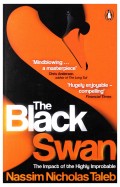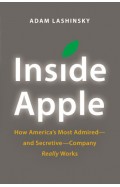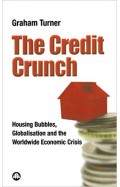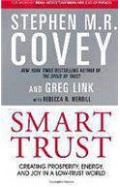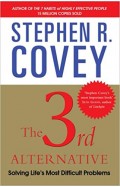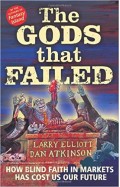Money in One Lesson: How it Works and Why
By: Gavin Jackson
-
Rs 2,800.75
- Rs 3,295.00
- 15%
You save Rs 494.25.
Due to constant currency fluctuation, prices are subject to change with or without notice.
Understanding cash, currencies and the financial system is vital for making sense of what is going on in our world, especially now. Since the 2008 financial crisis, money has rarely been out of the headlines. Central banks have launched extraordinary policies, like quantitative easing or negative interest rates. New means of payment, like Bitcoin and Apple Pay, are changing how we interact with money and how governments and corporations keep track of our spending. Radical politicians in the US and UK are urging us to transform our financial system and make it the servant of social justice.
And yet, if you stopped for a moment and asked yourself whether you really understand how it works, would you honestly be able to say 'yes'?
In Money in One Lesson, Gavin Jackson, a lead writer for the Financial Times, specialising in economics, business and public policy, answers the most important questions to clarify for the reader what money is and how it shapes our societies. With brilliant storytelling, Jackson provides a basic understanding of the most important element of our everyday lives. Drawing on stories like the 1970s Irish Banking Strike to show what money actually is, and the Great Inflation of West Africa's cowrie shell money to explain how it keeps its value, Money in One Lesson demystifies the world of finance and explains how societies, both past and present, are forever entwined with monetary matters.
Understanding cash, currencies and the financial system is vital for making sense of what is going on in our world, especially now. Since the 2008 financial crisis, money has rarely been out of the headlines. Central banks have launched extraordinary policies, like quantitative easing or negative interest rates. New means of payment, like Bitcoin and Apple Pay, are changing how we interact with money and how governments and corporations keep track of our spending. Radical politicians in the US and UK are urging us to transform our financial system and make it the servant of social justice.
And yet, if you stopped for a moment and asked yourself whether you really understand how it works, would you honestly be able to say 'yes'?
In Money in One Lesson, Gavin Jackson, a lead writer for the Financial Times, specialising in economics, business and public policy, answers the most important questions to clarify for the reader what money is and how it shapes our societies. With brilliant storytelling, Jackson provides a basic understanding of the most important element of our everyday lives. Drawing on stories like the 1970s Irish Banking Strike to show what money actually is, and the Great Inflation of West Africa's cowrie shell money to explain how it keeps its value, Money in One Lesson demystifies the world of finance and explains how societies, both past and present, are forever entwined with monetary matters.
Money in One Lesson: How it Works and Why
By: Gavin Jackson
Rs 2,800.75 Rs 3,295.00 Ex Tax :Rs 2,800.75
Zubin Mehta: A Musical Journey (An Authorized Biography)
By: VOID - Bakhtiar K. Dadabhoy
Rs 892.50 Rs 1,050.00 Ex Tax :Rs 892.50
The Black Swan The Impact Of The Highly Improbable
By: Nassim Nicholas Taleb
Rs 2,965.50 Rs 3,295.00 Ex Tax :Rs 2,965.50
Inside Apple How Americas Mo Admired And Secretive Company Really Works
By: Adam Lashinsky
Rs 1,215.00 Rs 1,350.00 Ex Tax :Rs 1,215.00
Buyology How Everything We Believe About Why We Buy Is Wrong
By: Martin Lindstrom
Rs 2,515.50 Rs 2,795.00 Ex Tax :Rs 2,515.50
The 3rd Alternative Solving Life s Most Difficult Problems
By: Stephen Covey
Rs 675.75 Rs 795.00 Ex Tax :Rs 675.75
Building Social Business The New Kind Of Capitalism That Serves Humanitys Most Pressing Needs
By: Muhammad Yunus
Rs 360.00 Rs 400.00 Ex Tax :Rs 360.00
No similar books from this author available at the moment.
No recently viewed books available at the moment.
Zubin Mehta: A Musical Journey (An Authorized Biography)
By: VOID - Bakhtiar K. Dadabhoy
Rs 892.50 Rs 1,050.00 Ex Tax :Rs 892.50
Money in One Lesson: How it Works and Why
By: Gavin Jackson
Rs 2,800.75 Rs 3,295.00 Ex Tax :Rs 2,800.75












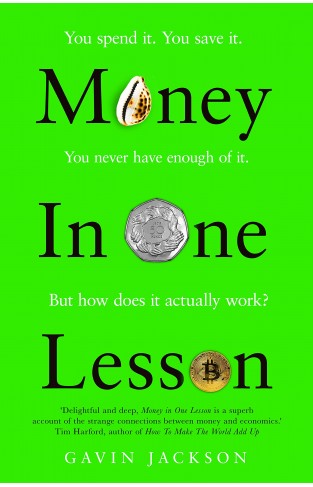
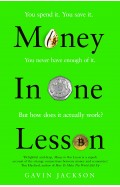
-120x187.jpg?q6)





